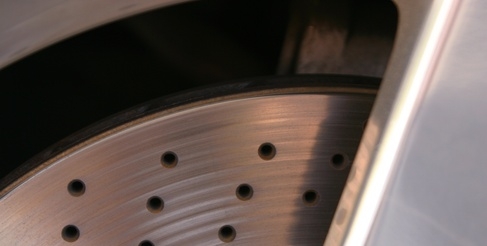
Most modern vehicles use an Anti-Lock Braking System (ABS) that prevents the brakes from locking up when you apply hard pressure to the brakes for more than a couple seconds. Older braking systems, mainly before the mid-1980s did not make use of ABS and those brakes were certainly susceptible to locking up when the driver hit that brake hard enough. Mike Gibson, a Brake Specialist with QuickWrench Auto Repair in Fairmont, W. Va., explains how to recognize when your brakes lock up and what to do about the situation to prevent disaster and regain control.
Listen for squealing tires when you apply your brakes. This is usually your first warning that your brakes have locked. Brakes not equipped with ABS will normally lock when you hit the brakes hard and hold pressure down on the brake.
Watch for your vehicle starting to slide and veer in one direction rather than maneuver in the direction you steer the vehicle, after applying your brakes. This is another indicator the brakes have locked. Once your brakes lock, you will lose control of the vehicle until released.
Lift your foot off the brake pedal as soon as your feel the brakes lock. To feel the brakes lock, you will no longer feel the car slowing down, but more like it is coasting at high speed, right before you hear the tires screeching and feel the vehicle sliding. You should immediately lift your feet off the brake pedal or let go of the brake lever on a motorcycle to unlock the brakes. Apply the brakes again and continue pumping the brakes in quick successions of applying the brake and lifting off the brake until the vehicle stops.